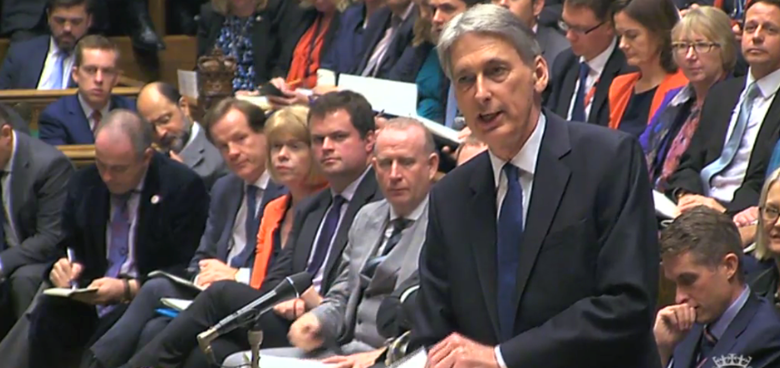Services for vulnerable children and young people 'at breaking point'
Gabriella Jozwiak
Monday, October 22, 2018
Services and support that vulnerable children and young people rely on are "at breaking point", with the government "ignoring them" in its spending plans, a group of more than 120 organisations in the sector have warned.

In an open letter to Prime Minister Theresa May and Chancellor Philip Hammond, the National Children's Bureau (NCB), the National Education Union (NEU), Coram and the Child Poverty Action Group, among others, urge the Prime Minister and Chancellor to "put children and young people at the heart of government spending".
The letter highlights a series of statistics highlighting the demands on the system, including the government's figures on looked-after children in England in March 2017, that show 90 children are taken into care every day - a record high.
It quotes NHS figures that suggest less than a third of children and young people with a diagnosable mental health problem will get access to NHS-funded treatment this year.
And it points to problems within schools, citing government data that shows the number of children with special educational needs or disabilities (SEND) who are awaiting provision has more than doubled since 2010.
With Chancellor Phillip Hammond due to deliver the autumn budget on 29 October, NCB chief executive Anna Feuchtwang, who is also chair of the End Child Poverty coalition, said it is "high time the government puts its money where its mouth is and makes a concrete financial commitment to the welfare of children".
"Things we once took for granted, like family support, children's centres, and respite care for families with disabled children are now the privilege of the few," said Feuchtwang.
"In some areas of the country, over half the children are growing up in poverty. For these children and the many others who need urgent help, the services, benefits and support that could provide a lifeline have been cut to the bone.
"We are failing our children if we don't put them at the heart of government spending."
Pressure has been building on local government finances for a number of years, resulting in many cutting early help services in order to try to deal with increasing demand.
Analysis carried out by the Labour Party found spending on children's services fell from £7.9bn in 2012 to £7.6bn last year. Labour said the figure represented a real-terms cut of nearly £1bn if inflation is taken into account.
The Local Government Association has previously warned that children could be left in circumstances of risk unless the government acts to plug an estimated £2bn funding gap by 2020.
NEU joint general secretary Kevin Courtney warned that school funding is also at "breaking point".
"Many head teachers having to drastically cut back on courses offered, resources, building repairs, school trips and after school clubs," he said.
"Class sizes are being increased and the numbers of teachers and support staff are being reduced while begging letters for money to parents and carers are commonplace.
"Enough is enough - our schools need more funding if we are to give all our children, including those with SEND, the education they deserve."
The letter is signed by 16 organisations with 112 more adding their logos to show their support.
It said: "We have come together at this crucial time to urge you to put children and young people at the heart of government spending."
In response to the call, Royal College of Paediatrics and Child Health president Russell Viner said doctors share the concerns, particularly over mental health provision.
"In England over the last two decades, the proportion of children and young people saying they have a mental health condition has grown six fold but we have a service that cannot keep up with demand, leading to a large number of these children not being able to get the help they need," he said.
"The government has already indicated it is serious about protecting child health with the publication of its Childhood Obesity Plan which if delivered, will turn the tide on these obesity predictions.
"However, the Chancellor's upcoming budget, along with the government's long-term plan, provide an opportunity to renew that focus and show support for other important child health concerns and I look forward to working alongside them to do so."




